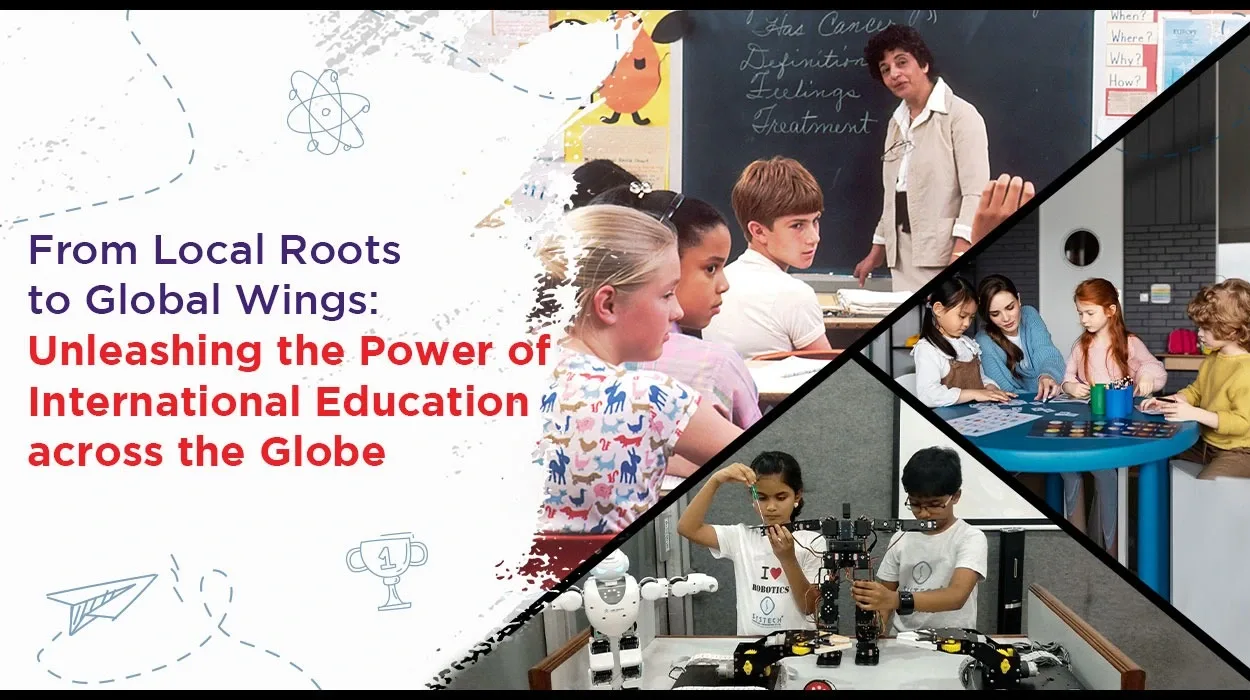The fusion of local traditions with global learning has revolutionised education, empowering students to thrive in an interconnected world. The International Baccalaureate (IB) curriculum has been instrumental in this transformation, elevating unique education landscapes in countries like Japan, India, Kazakhstan, and Thailand. By balancing cultural preservation with global citizenship, IB schools cultivate empathetic, critically thinking individuals who can navigate complex challenges. This synergy enables education to transcend borders, fostering active, compassionate, and enlightened global citizens.
Japan: Cultivating Peace and International-Mindedness
Hiroshima’s City Peace Project exemplifies the power of education in fostering global citizenship and peace. This innovative initiative integrates conflict resolution and global peace into the curriculum, aligning with Japan’s values of discipline, respect, and community. The International Baccalaureate (IB) curriculum complements this approach, developing international-mindedness, critical thinking, and inquiry skills in students. By confronting the past and learning from it, Hiroshima’s students transform historical lessons into meaningful contributions to global peace efforts. This educational model demonstrates how empathy, understanding, and global citizenship can converge to create a more peaceful world.
Kazakhstan: Nurturing Bright Minds for Global Success
Kazakhstan is pioneering forward-thinking education, nurturing talented students for global success. Government-funded schools integrate local values with the International Baccalaureate (IB) curriculum, fostering critical thinking, inquiry-based learning, and bilingualism. By emphasizing fluency in Kazakh, Russian, and English, students develop skills to thrive in an interconnected world. This balanced approach preserves Kazakh heritage while equipping students with global competencies. Kazakhstan’s educational model cultivates future leaders who can navigate complex global issues.
India: Beyond Rote Learning: Fostering Critical Thinkers
India’s education system is undergoing a transformative shift, embracing the International Baccalaureate (IB) curriculum’s holistic approach. This progressive move prioritizes critical thinking, interdisciplinary connections, and ethical reasoning, empowering students to move beyond memorization. Inquiry-based learning fosters deeper understanding, creativity, and innovative thinking. Ethical awareness guides informed decision-making, preparing students for complex global challenges. As India’s education evolves, it will yield a future workforce equipped to drive innovation, navigate global issues, and lead collaboratively.
Thailand: Growing Global Citizens through Sustainable Practices
Thailand’s innovative schools seamlessly integrate organic farming and sports into their curriculum, blending local traditions with global best practices. The International Baccalaureate (IB) curriculum’s focus on sustainability, ethical responsibility, and global awareness complements this hands-on approach. Students learn environmental sustainability, teamwork, and responsibility through farming activities, and develop discipline, collaboration, and leadership skills through sports. By merging traditional Thai values with the IB’s global perspective, these schools cultivate leaders who will positively impact their communities. This holistic education instills values of sustainability, responsibility, and global awareness, shaping a brighter future.
The Power of International-Mindedness
A pioneering approach to education is emerging in Japan, Kazakhstan, India, and Thailand, harmoniously integrating international curricula like the International Baccalaureate (IB) with local traditions. This balanced education nurtures students who are academically accomplished and globally aware, rooted in their cultural heritage yet empowered with a broader worldview. Equipped to thrive in an interconnected society, these individuals will shape the future. By combining local values with the IB’s global framework, international schools cultivate leaders who navigate complex global challenges with creativity, empathy, and wisdom, carrying forward their cultural identities.
Key Takeaways for Educators
Here are some actionable strategies, complete with real examples, that educators can implement in their classrooms to foster a local-to-global mindset:
- Integrate Global Perspectives: Use materials and resources that reflect diverse cultures and viewpoints. For instance, in a history lesson, educators can include stories from various cultures about a global event, such as the impact of World War II. Incorporating primary sources, like letters from soldiers from different countries, can provide students with multiple perspectives on the same event. This approach helps students understand global issues through the lens of their local context, promoting empathy and awareness.
- Encourage Inquiry-Based Learning: Foster a culture of questioning where students feel comfortable asking questions and exploring topics in-depth. For example, during a science unit on climate change, students could be encouraged to research local environmental issues, such as air quality or water pollution, and propose solutions. This inquiry-driven approach allows students to connect theoretical knowledge with real-world applications, enhancing critical thinking and problem-solving skills.
- Promote Bilingualism and Multilingualism: Encourage students to learn multiple languages by incorporating language-rich activities in the classroom. For instance, a school could implement a “Language Buddy” program where students partner with peers from different language backgrounds to practise conversational skills. This not only enhances communication skills but also fosters cultural understanding as students learn about each other’s traditions and customs.
- Connect Learning to Real-World Issues: Create opportunities for students to engage with local and global challenges through projects and discussions. For example, a social studies class could partner with a local non-profit organisation working on poverty alleviation. Students could conduct research, organise fundraising events, and even volunteer, making learning relevant and impactful while addressing real community needs.
- Incorporate Service Learning: Develop programs that encourage students to engage in their communities, fostering social responsibility and a sense of global citizenship. For example, a school might organise a service project where students clean up a local park or work with a food bank. By reflecting on their experiences, students can connect their service to broader issues of community health and well-being, thereby reinforcing their role as active global citizens.
- Emphasise Collaboration: Foster teamwork and collaboration among students to help them learn to work effectively with diverse groups. For instance, educators could implement group projects that require students to collaborate with peers from different backgrounds or grade levels. This not only enhances their social skills but also prepares them for future global interactions, as they learn to appreciate diverse perspectives and work towards common goals.
By adopting these strategies, educators can cultivate a classroom environment that not only celebrates local heritage but also embraces global citizenship.
Mrs Aditi Bhattacharya
Head of School
Radcliffe Group of Schools – Bangalore




